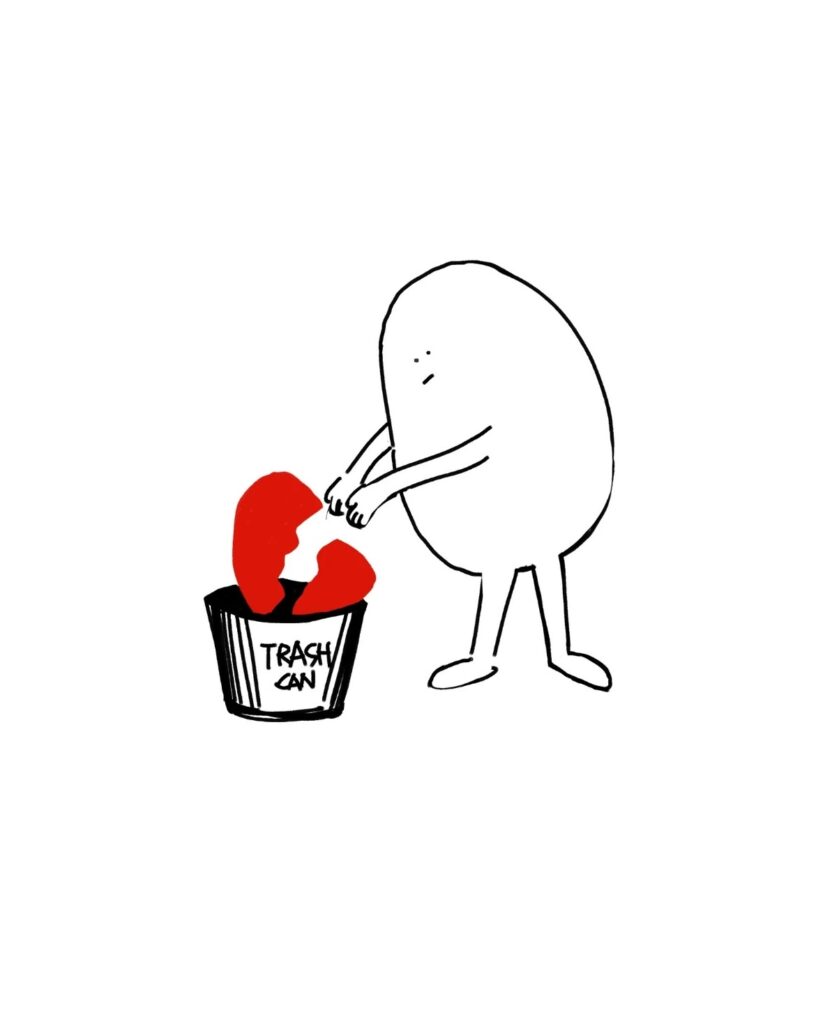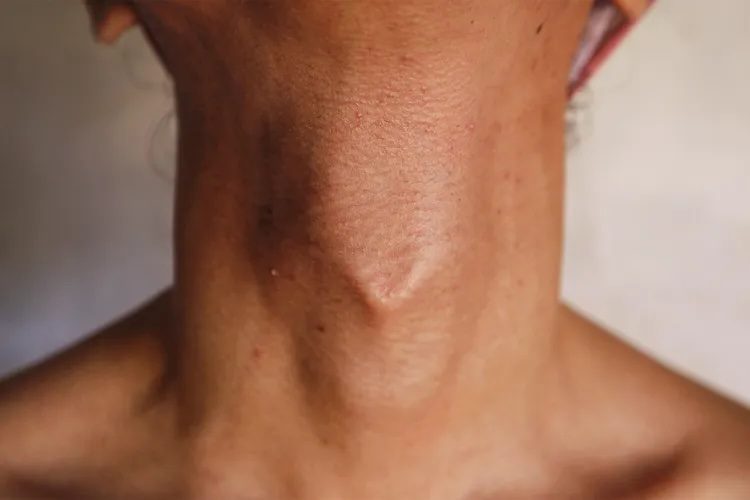

Stuffing a crystal into the vagina? Even in the realm of metaphysics, this is quite mind blowing!
Today’s article is a simple and brutal compilation of bizarre vaginal products!
The reason for writing this is because Mayme recently discovered several new and novel products that have been hyped to the skies, but after deep digging, they are still the old tricks of selling anxiety, with no scientific basis, the “three no products”: Yoni Pearls, vaginal gummys, and a gel.
I hope you haven’t tried any of the methods mentioned next, and I hope the merchants will stop and leave women’s vaginas alone!
Yoni Pearls: Vaginal Detox Pearls
A Yoni Pearl is a small ball made of natural herbal ingredients, wrapped in a cotton net, called Qinggong Pills in China, and Vaginal Detox Pearls or Yoni Pearls (Yoni is the Sanskrit word for vagina) abroad.
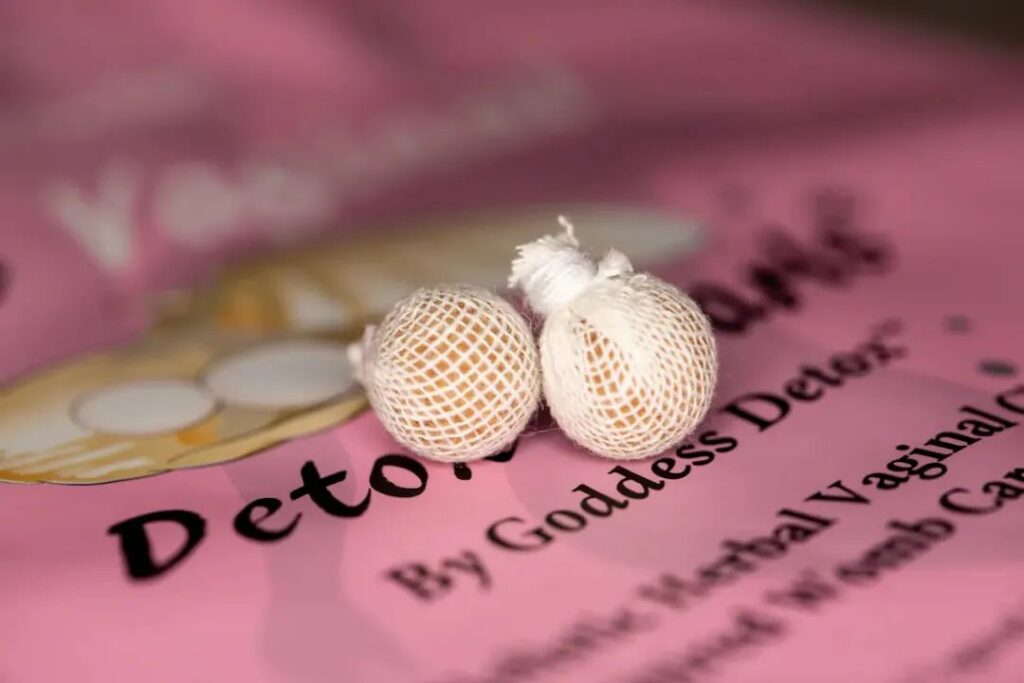

Its product page states that inserting a “pearl” (the Yoni Pearl) into the vagina for 24 hours will remove harmful substances from the vagina, specifically toxins, harmful bacteria, blood clots, mucus, etc., and then expel them from the body, thus purifying the vagina, removing vaginal odor, and achieving anti-inflammatory, disinfecting, antipruritic, and tightening effects. It even has a selling point that says: “It can help expel the toxicity left by your ex in your vagina.”
It’s another trick that makes women feel like they have dirty things in their bodies that need to detox and clean, but in fact, our bodies are already very clean, and the vagina has the ability to clean itself with the help of natural bacteria and does not need extra help.
Contrary to the promotion of vaginal pearls, inserting any foreign object into the vagina can affect the balance of vaginal flora and pH value, which in turn increases the likelihood of bacterial vaginosis.
The Yoni Pearl may kill cells in the vagina that help resist infection, or cause vaginal epithelial tissue to shed, which is equivalent to destroying the protective barrier of the vagina, making the vagina more susceptible to bacterial infection. Additionally, the mesh material can cause chronic irritation, leading to ongoing discomfort or injury.
Many users who purchased the Yoni Pearls shared photos of themselves using it, with the Yoni Pearl mixed with a lot of gray, brown secretions when it was removed. This is considered a sign that it is working, and those dark secretions are the so-called “toxins.”
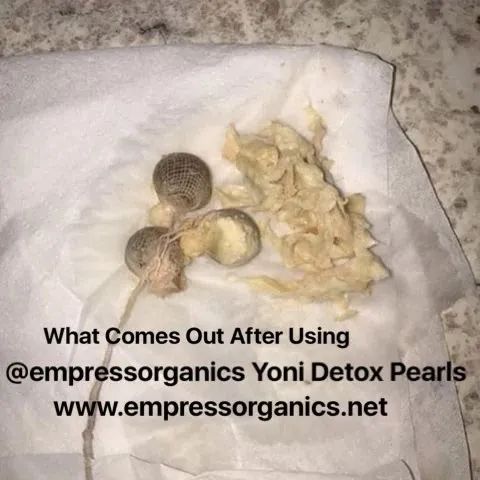

In fact, this not only does not indicate that the vagina is getting healthier but is also a sign that the vaginal wall is being damaged, the vagina is being stimulated, or even infected.
Foreign objects that stay in the vagina for a long time can also lead to a rare condition called toxic shock syndrome (TSS) and increase the risk of yeast infections.
Long periods without changing a tampon can lead to TSS, so the recommended use time for tampons is no more than 8 hours, while the recommended time for detox pearls is longer at 24 hours, and some products even suggest using them for 48 hours, increasing the risk of TSS.
The cunning part of vaginal Yoni Pearls is that they look very harmless because their ingredients contain many natural herbs such as Leonurus, Angelica, safflower, borneol, rhubarb, Cnidium, etc., but whether these ingredients can achieve the effects they promote has not been proven by scientific research. Vaginal pearls are products not regulated by the FDA.
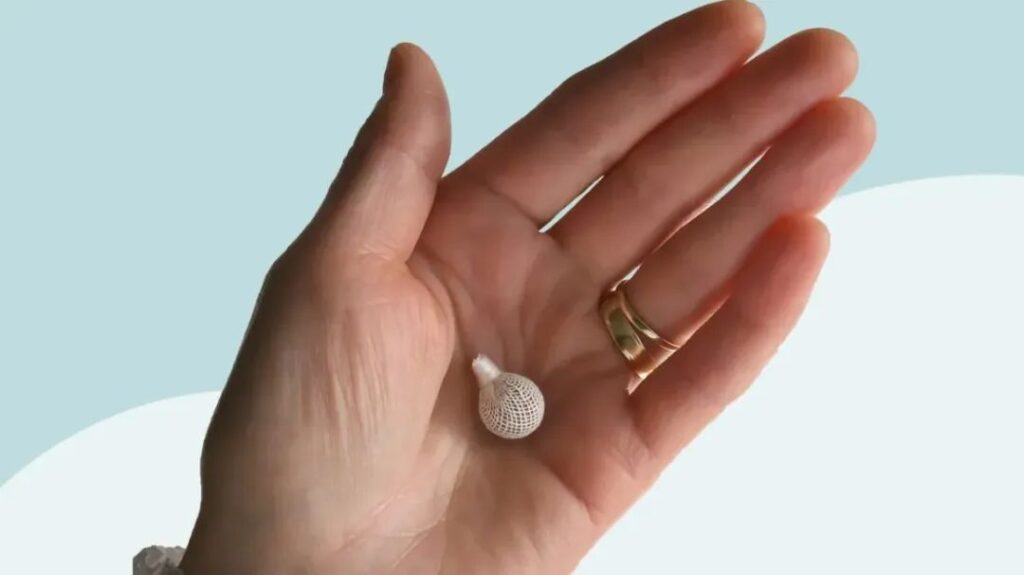

On the buyer’s show page, those who bought vaginal pearls use them either to treat vaginitis or to purify their bodies. As mentioned before, our vaginas do not need to be purified. If it is vaginitis, it is better to follow medical advice for treatment. In any case, there is no need to put pills into the vagina.
Vaginal Detox Egg
Next up is something quite hefty—literally, because these are actually quite heavy.
You might have seen people wearing crystal bracelets to purify auras or ward off evil, but have you ever heard of crystal eggs being placed inside the vagina?
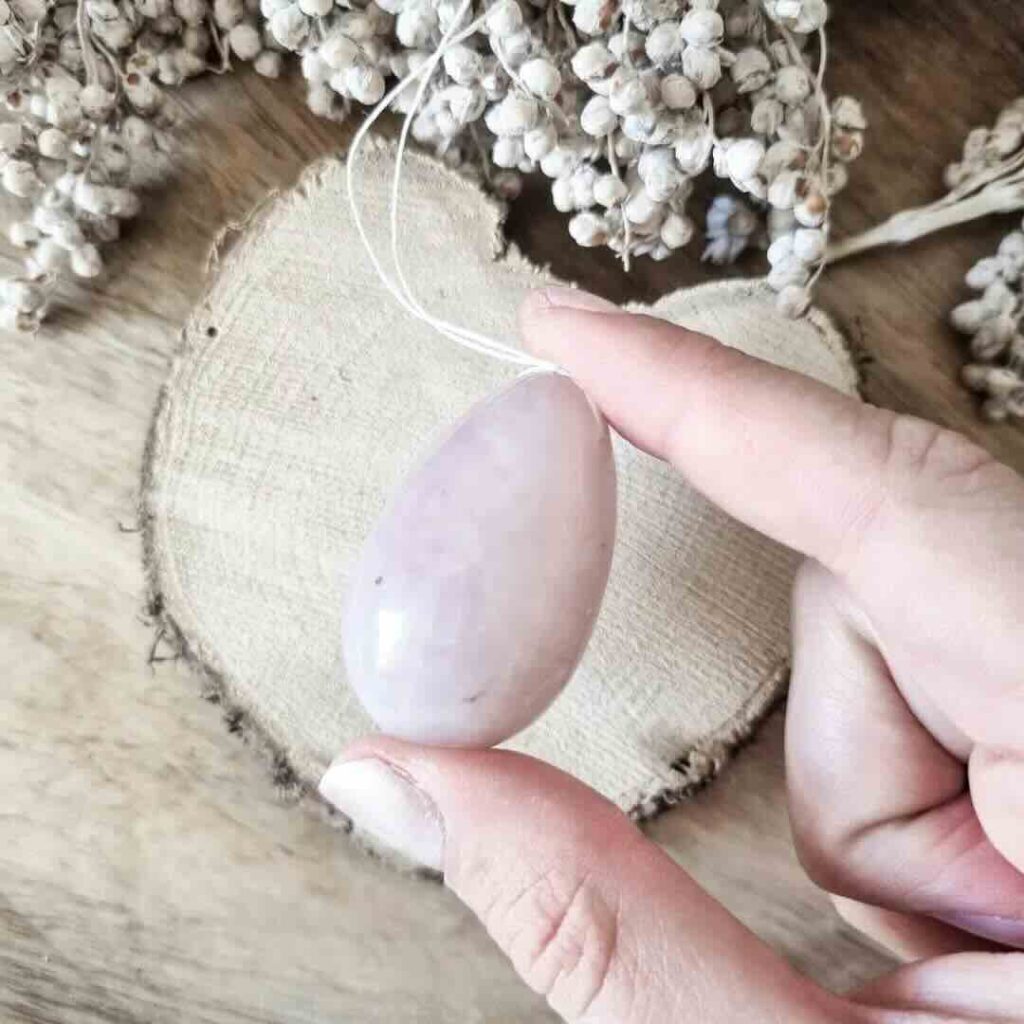

Vaginal eggs can be made from various materials including jade, obsidian, agate, and various types of crystals. They are touted to heal women’s energies and enhance feminine aura. Beyond that, they are also claimed to have health benefits such as strengthening pelvic muscles, balancing menstrual cycles, promoting urinary and digestive health, and alleviating menstrual pain.
Let’s set aside the first claimed benefit, which is purely metaphysical, and something we might as well achieve by wearing crystals on our wrists or necks. As for the latter claims, there is also no scientific research proving that these effects can be achieved.
Moreover, placing crystal eggs in the vagina can be unsafe.
The material of crystal eggs is porous, making them hard to clean thoroughly, and they could harbor a large amount of bacteria which may disrupt the vaginal microbiome and even cause infections.
Once inserted, the pelvic floor muscles may continuously contract, which could lead to muscle strain and vaginal spasms. Additionally, interfering with the vagina’s natural balance could lead to an elevated risk of sexually transmitted infections.
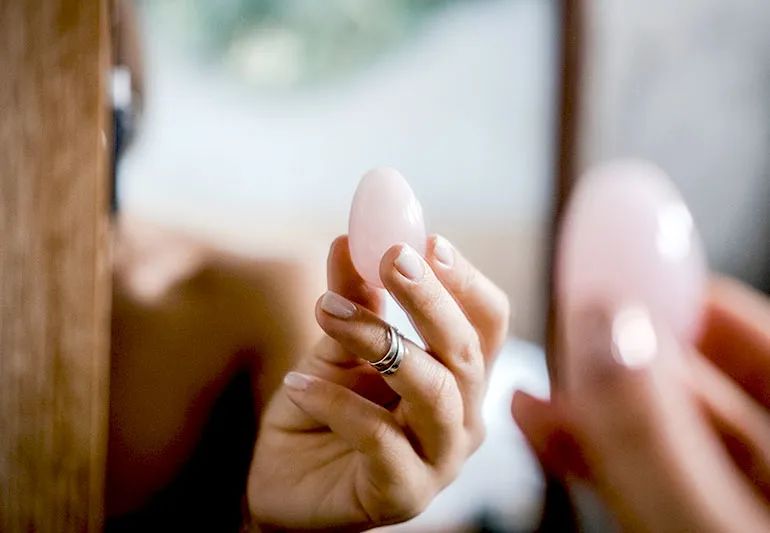

Websites selling vaginal crystal eggs abroad have ultimately faced lawsuits for false advertising, resulting in a fine of $145,000, which speaks volumes about their unreliability. If you’re looking to strengthen your pelvic muscles, it’s better to do Kegel exercises, and if you’re looking to treat menstrual pain, consider adjusting your lifestyle and diet, and follow medical advice for any medications.
Using crystals for metaphysical purposes is one thing, but there’s really no need to involve the vagina!
Viginal Gummy
The scent of the vagina is another area where manufacturers often create anxiety, as if the vagina needs to smell sweet and pleasant like desserts or fruit.
But does it really work?
According to the official website, these vaginal gummies contain a probiotic called Bacillus coagulans,which can adjust the vaginal flora and pH level to keep the vagina smelling fresh and manage normal vaginal discharge.
Many medical experts have questioned the claims about its effectiveness. They also mention that Yoni Pearls can be used to address vaginal dryness as well as other feminine health issues. The Natural Medicines Comprehensive Database from the National Library of Medicine shows that this probiotic may have some effect in helping alleviate gastrointestinal discomfort and constipation, but there is no research proving it can maintain vaginal health or change odors.
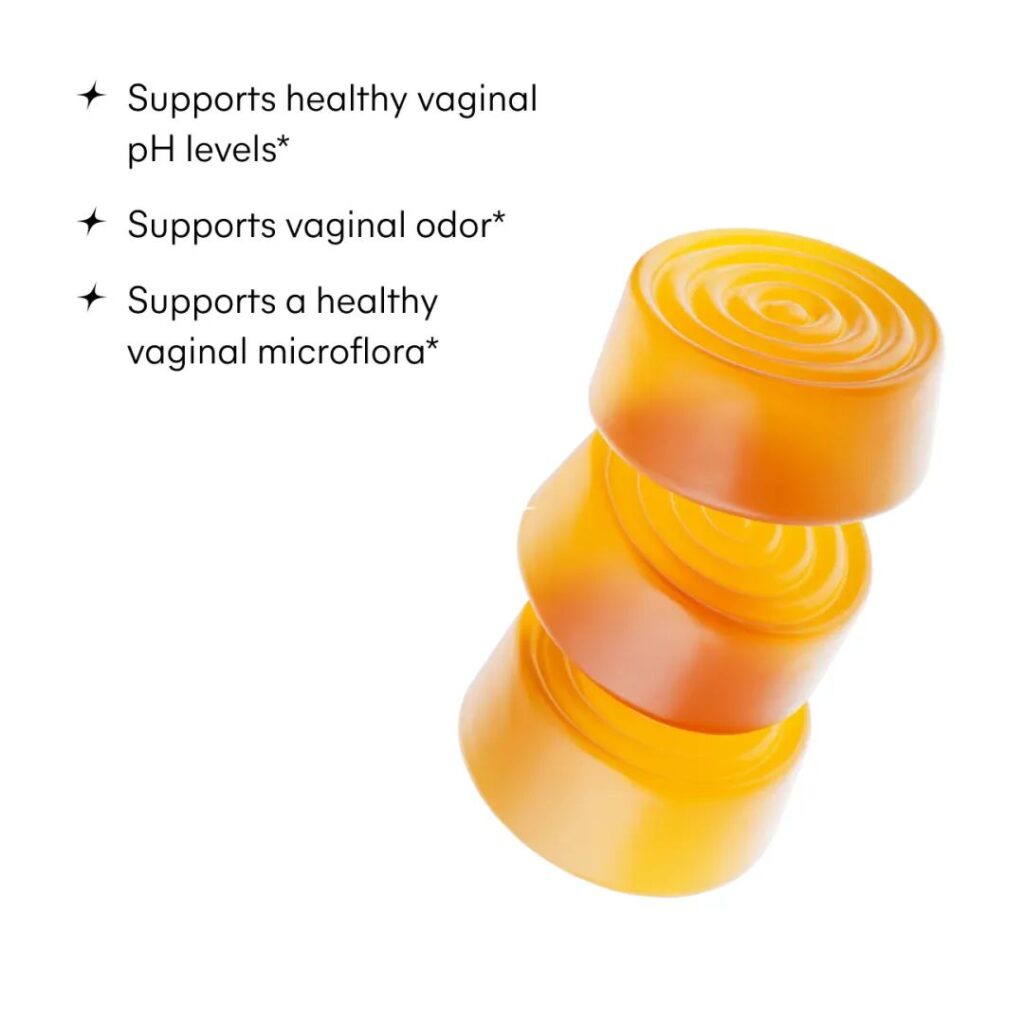

Using food to change the smell of the vagina is fundamentally flawed, and furthermore, why should it need to change at all? This is a major criticism of this product, creating an unnecessary demand for women, making them feel ashamed and anxious about their natural body state.
As long as the vagina is not emitting fishy, rotten, or foul odors, there’s really no need to worry. A healthy vagina naturally has a slightly sour, yogurt-like scent, due to the lactobacilli that make up over 95% of the vaginal flora. These bacteria keep the vaginal environment at a mildly acidic pH of 3.4 to 4.5, preventing the invasion of pathogenic bacteria.
Moreover, vaginal odor can also be affected by lifestyle habits, menstrual cycles, medication, and more, but these are all normal.
The vagina is neither a flower nor food; it doesn’t need to smell good or please anyone. Health is what truly matters.
Many products related to vaginal odor are still out there, and unfortunately, when it comes to exploiting women, businesses around the world behave similarly.
Korea has seen the popularity of vaginal perfumes, mainly composed of plant essential oils, which do not achieve their touted effects of preventing vaginitis or reducing bacterial growth, and their safety is unknown, potentially causing allergies and inflammation.


Japan also has a vaginal gel that claims to “make your boyfriend love oral sex.” Because it contains various flower extracts, it certainly smells nice, but applying it to the private area could induce vaginitis, and there’s also the potential for allergic reactions, itching, and swelling.
White Cream
Color is another area frequently criticized. Naturally occurring pigmentation due to aging and the effects of estrogen makes the private areas appear darker, as melanocytes there are far more numerous than in other parts, yet this natural pigmentation is often falsely attributed to promiscuous sexual activity, spreading shame and selling harmful products to women.
Some popular vaginal whitening products include those containing erythrosine, a chemical dye, essentially tinting the area pink. While they do make the area look pinker, the skin there is very delicate and may cause itching, allergies, or pain.
Others contain ingredients like fruit acids, niacinamide, and arbutin, which do have some effect on inhibiting melanin production and promoting its metabolism.
However, the same ingredients are used in face creams, and despite long-term use, they rarely achieve the dreamy whitening effect, especially since the melanocyte density in the private areas is much higher than that of the face. Moreover, applying these also carries risks of allergic reactions and skin burns.
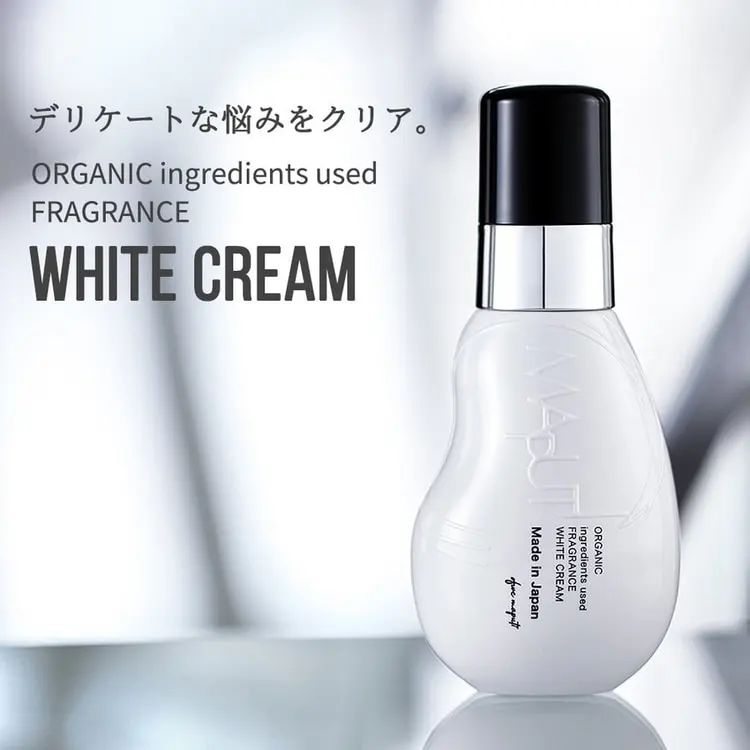

Another product’s main ingredients are water and glycerin, which mainly serves as a moisturizer and does not achieve the whitening effect advertised.
Ice for Vaginal Tightening
As chilling as it sounds, this was indeed a popular method on TikTok, even having its own hashtag #icecubechallenge, with many participating in the ice for vaginal tightening challenge.
As the name suggests, placing an ice cube in the vagina is thought to tighten it. The low temperature indeed causes muscles and tissues to contract, but this effect is very transient and disappears once body temperature normalizes.


Low temperatures can also cause damage to the vaginal mucosa; if the ice is not clean—for instance, if the ice tray isn’t sealed properly or is stored with raw meat—placing such dirty ice in the vagina could lead to vaginitis, impacting overall sexual health.
With summer here, it’s fine to put ice in cola, coffee, or bubble tea, but placing it in the vagina is frankly disturbing. What did the vagina do to deserve such treatment?
With an array of vaginal products focusing on tightness, color, and scent, these are all based on societal and cultural demands on women’s bodies, compounded by many women’s lack of knowledge about their own anatomy. Some products even claim to eliminate toxin buildup from past sexual partners.
Therefore, our mission is to ensure all women know: the vagina is clean, it can clean itself, it’s strong, won’t easily become loose, it has a natural musky scent, and its darker color is healthy!
We hope that those who are already aware of this information will spread it to other women. The more we understand our bodies, the less likely we are to be deceived and conditioned by societal norms.



